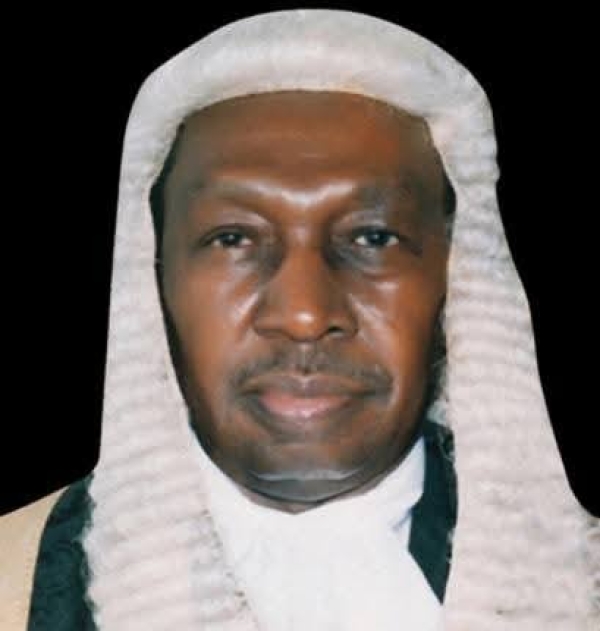Chief Emeka Anyaoku, Elder Statesman and Secretary of the Commonwealth (1990-2000), has paid glowing tribute to former Nigerian Chief Justice Mohammed Uwais, who passed on Friday, 6 June 2025, aged 88.
“I have received the news of the passing of Justice Uwais with considerable sadness,” Chief Anyaoku said in his condolence message, recalling that “Justice Uwais rendered outstanding service to his country of Nigeria and the Commonwealth country of Sri Lanka.”
“He was one of the three Supreme Court judges who, at the request of the Sri Lanka government, I, as Commonwealth Secretary-General, nominated to serve on a Commission that the government appointed to enquire into the assassination of the head of the country’s defence forces, which portended a major national crisis.
“In addition to his memorable service as the Chief Justice of Nigeria and as the Chairman of the Uwais Commission on our country’s electoral process, Justice Uwais, an undoubted pan-Nigerian figure and I worked together in the Selection Committee of the Obafemi Awolowo Leadership Prize Awards,” Chief Anyaoku noted.
He added: “I join his family and many friends and associates across Nigeria and abroad in mourning this quiet but truly great former head of the Nigerian judiciary. May his soul rest in peace.”
Justice Uwais, who would have been 89 on June 12, served as Nigeria’s Chief Justice from 1995-2006.
After retiring from the Supreme Court, he chaired a panel on electoral reform that submitted a report in December 2008 with far-reaching recommendations, including the establishment of commissions to deal with electoral offences, Constituency Delimitation, and Political Party Registration and Regulation.
The committee also recommended that the National Judicial Commission appoint the head of the Independent National Electoral Commission (INEC), Nigeria, instead of the President.
Many of the recommendations were rejected by former President Umaru Yar’Adua and ignored by subsequent administrations.
However, with recourse to Uwais and similar Committees’ recommendations, there have been renewed strident calls for drastic electoral reforms as Nigeria heads towards critical elections in 2027, after several rounds of disputed polls since transitioning from a long spell of military dictatorship to civilian rule in 1999.
Similarly, apart from advocating for the restructuring of Nigeria and devolution of political power to the federating units, Chief Anyaoku and other eminent Nigerians are also calling for a new constitution to replace that of 1999, which critics believe has not addressed the diversity of Africa’s most populous nation with more than 200 million people of diverse culture, ethnicity and languages.


